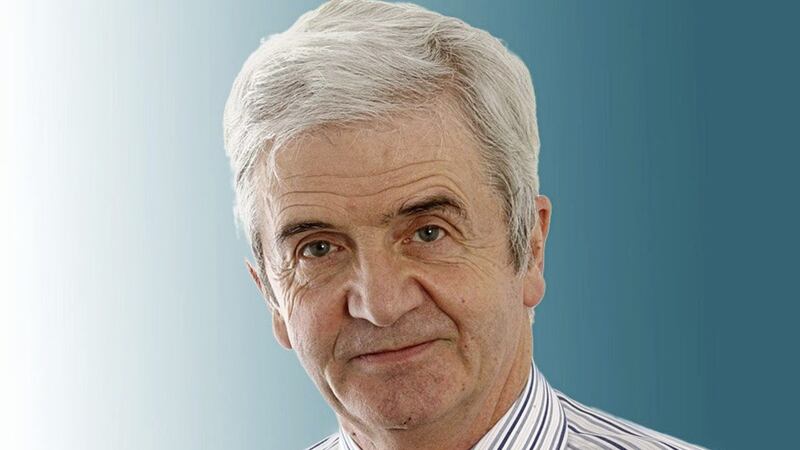Future historians will presumably describe 2019 as either the year of Brexit, or the year of the phoney Brexit, when nothing happened. The first will apply if the UK leaves the EU in March and the second, which is looking increasingly likely, will be used if Britain decides to remain, pending a withdrawal agreement.
But whatever happens, the Brexit debate over recent years has already massively influenced Irish politics and society, heralding what is likely to be a significant chapter in any future history of Ireland. That chapter might well be called, What Brexit Did To Ireland, and it will describe how between 2016 and 2019, modern Ireland entered a new era.
It is an era which has skewed Irish politics, set Ireland on an irreversible path of political and military integration within the EU and re-defined Irish nationalism, not in terms of independence or Irish unity but, as a patriotic perversion based on Brit-bashing. Welcome to a defining moment in the Irish psyche.
The influence on Irish politics is most obvious in Dublin where, because of uncertainty over Brexit, Fianna Fáil continues to support the Fine Gael government, for at least another year. The two parties now rely on each other to preserve an unusual form of administration. In Dublin, Brexit has made the abnormal normal.
In Belfast, Brexit did what everything else does here. It increased sectarian divisions, leaving Stormont's return more remote than ever.
A more far-reaching change has occurred in Irish foreign affairs. The Dublin government failed to recognise that Ireland's relationship with Britain is different from any other EU state, because of historic, economic and cultural connections. When Britain decided to leave the EU, Dublin might have used those connections to become a bridge between Brussels and London.
Leo Varadkar could have followed Reynolds, Ahern and Kenny to enter dialogue with unionism and to negotiate special customs arrangements between Britain and Ireland. Those arrangements could then have been presented to Brussels as a solution to the border issue, with unionist support.
It is reasonable to suggest that it might not have worked. It is unreasonable to suggest it should not have been tried.
Instead, Leo supported the EU's hard-line attitude towards Britain. As Ray Bassett, former Irish ambassador to Canada, wrote recently, it is sad to witness officials from Brussels and London deciding the future of the Irish border, with no Irish person in the room.
As well as abandoning political neutrality, Ireland is also abandoning military neutrality. Last year it joined the EU's Permanent Structured Cooperation on Security and Defence, which legally binds it to a four-fold increase in military spending to €4 billion annually. This has led to membership of the EU's military Training Mission Competence, with 12 other countries including Romania, which is now proposing an amnesty to protect its politicians from prosecution for corruption.
The mission's aim is to "protect Europe's citizens". One of the biggest threats to Europe's citizens is the Romanian government.
EU Commission President Juncker says the EU needs its own army to command international respect. Leo says that a Europe worth building is a Europe worth defending, describing Juncker as "a supporter of Ireland" (whatever that means).
Within the EU, Britain argued for NATO to defend Europe. With Britain gone, the EU is building its own army, with the Irish in the vanguard, heading back to the trenches, 100 years after they left. They are thus removing every last vestige of the political independence pledged by the First Dáil, also 100 years ago.
(Can someone in Sinn Féin or the SDLP explain why if the 1801 Act of Union with Britain was wrong, a similar act of union with 26 other countries is right? Remember, like Norway, we can trade with the EU without political union.)
In the wider Brexit sphere, it is now not just acceptable, but our patriotic duty, to dislike England. Much of the Irish media has lost the run of itself, with one newspaper describing Brexit as "pig ignorance", an interesting comment on a democratic referendum. Our words are now dangerously close to reversing England's 19th Century anti-Irish Punch magazine cartoons. It is not an attitude of which we should be proud.
Brexit will sort itself out eventually, but its more lasting impact will be on what it did to Ireland. It is always difficult to swim against the current of popular Irish opinion, but, as in the case of support for the First World War, the stark reality of truth ultimately harnesses populism. Sadly, it will take a while for the truth of this new era to emerge into mainstream history.









